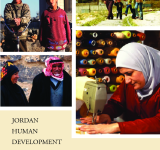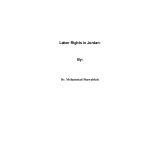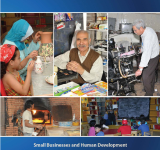The tourism sector assessment report examines critical questions related to Jordan's best opportunity areas for tourism development growth that will result in increasing tourism receipts;; private-sector investment in tourism;; and tourism-related employment. The report identifies global trends;; best practices;; and benchmarks shaping tourism demand and competitiveness. It also suggests approaches for expanding tourism in key Jordan governorates and secondary destination in ways that benefit local communities. According to the assessment;; Jordan is well-positioned to move from a regional;; multi-country tourist destination to a stand-alone destination with a portfolio of tourism products with year-round appeal for foreign and domestic visitors;; and this will require a long-term commitment from both public and private stakeholders. It suggests collaboration between Jordan's government and private sector;; localized and inclusive economic development implementation strategies and increase in the supply of skilled tourism workforce professionals.



